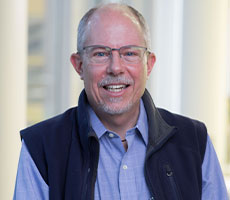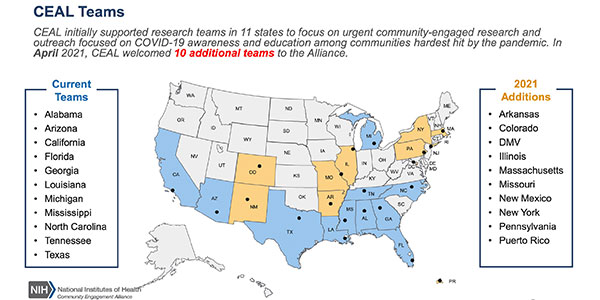A new fast-track research project aimed at identifying and eliminating health disparities is underway.
It’s called CEAL, which stands for Community Engagement Alliance – Against COVID-19 Disparities. 
The Department of Family Medicine’s (DFM) own Don Nease is one of the principle investigators of this community-based deep-dive which is beginning with a COVID-19 focus.

The study is funded by the National Institutes of Health (NIH) and is part of a larger national network of CEAL projects throughout the country working to get to the bottom of COVID-19 vaccine and therapeutics hesitancy among disproportionately-impacted racial and ethnic communities.
In Colorado, Nease and his research team are focused on urban and rural African American, Hispanic/Latino, and American Indian/Alaska Native communities. See their specific research questions and aims in this slide:

Nease says the work will entail recruiting a cohort of 200 people out of each community, conducting comprehensive surveys and social network analysis to measure the impact, evaluating specially designed messaging with community input, and creating a community clinical trials advisory board to increase access to clinical trials for underserved populations.
“It shouldn’t take a pandemic to show that we have under-invested in community engagement,” says Nease. But, regardless, he is happy that it has become a priority for NIH to put resources behind tackling disparities.
He says that work begins with COVID-19, but is meant to continue past the current crisis to address health disparities across the board. And, for him and our communities, that is exciting.
“It’s really cool to be a part of this national level work. But, it’s also really cool to be able to this locally and have an impact in the way that we have an opportunity to do here.”

.png)
.png)
.png)